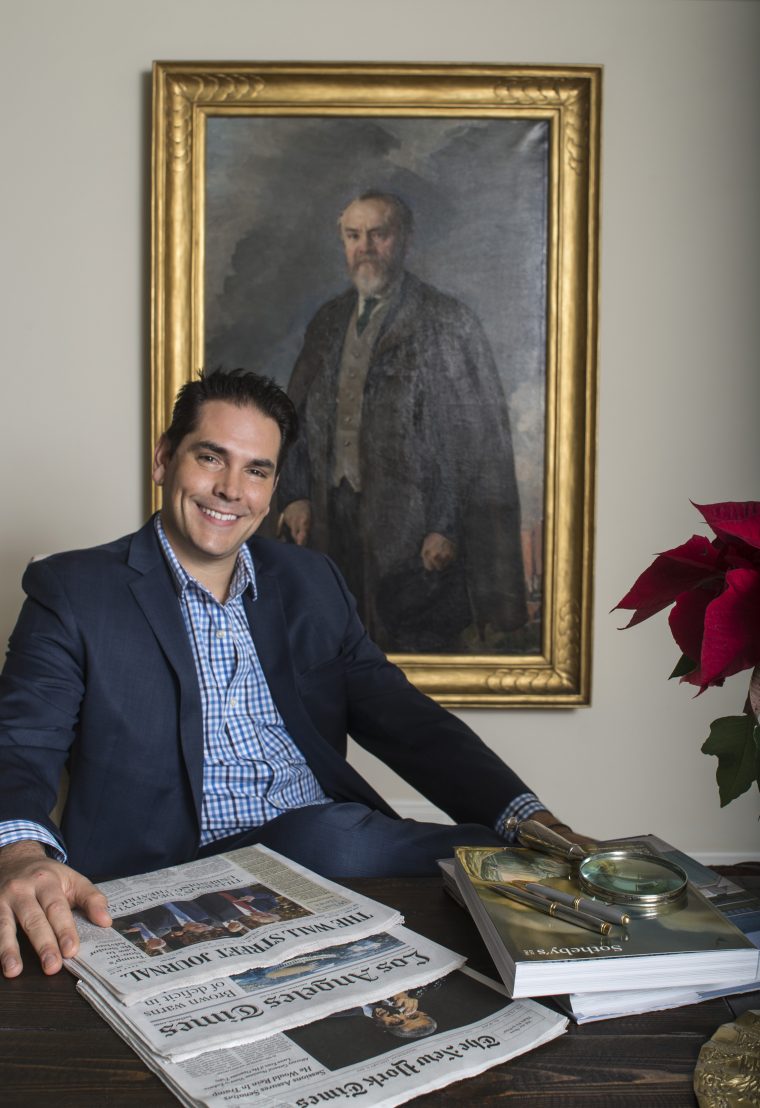

(As featured in YPO- June 8, 2017)
Written by: Deborah Stoll
Having just returned home after a whirlwind round of participation at the Milken Institute Global Conference, the YPO Innovation Summit in Silicon Valley and the Berkshire Hathaway Annual Meeting, Demetri Argyropoulos (YPO Europe One) is besieged by friendly faces waving and stopping to say hello as he walks down the streets of Santa Barbara, California, USA.
His popularity comes as no surprise. As Chief Executive Officer of Avant Global, Demetri and his partners have forged relationships, created opportunities and generated more than USD10 billion in value creation across a range of projects and businesses. Personally, Demetri has been the catalyst for successfully originating, co-founding or seeding more than 50 new companies and as a philanthropist, has raised tens of millions of dollars for charity. His work with multi-national foundations, charities and non-government organizations include the Clinton Foundation, the Santa Barbara Historical Society, 1199 Foundation, Lotus Land Foundation, American Lung Association, CALM, Habitat for Humanity and the Ronald Reagan Presidential Foundation to name a few.
We managed to glean a few questions and answers as Demetri made his way through the palm tree-lined streets bordered on one side by the Santa Ynez Mountains and on the other, endless views of the Pacific Ocean.
What was your first job?
I worked for a billionaire when I was 18. I looked at him and asked myself, “How does this guy make so much money every day?”
When I was 19, I volunteered for (then) President of the United States Bill Clinton and experienced the way in which people came into his ecosystem and built their relationships with him based on trust.
Subsequently I had great mentors from then on who reinforced the idea that relationships are what’s important – that what we are really selling at the end of the day (regardless of what we are literally selling), is trust.
On your website you say, “Meaningful moments occur when the right mix of opportunity, value and trust collide and that of these three, trust is the most powerful and difficult to obtain.” Can you expand on this?
I realized at an early age that it’s all about who you know, which is a derivative of who you trust. That is the common denominator of successful people. They value trust over anything. It’s okay to fail as long as you’re doing it honestly.
You are known as something of ‘a connector.’ When you bring two people together for a potential business partnership, what qualities do you look for in each?
They should have shared common values and be motivated by the same things, but also have talents that complement each other. This will allow the relationship to flourish in a complimentary way. Accountability is a large part of forging a healthy working relationship.
Plenty of people make connections and do their due diligence, yet more often than not, relationships fall apart. What do you “get” that others don’t?
There are a lot of EQ (emotional intelligence) qualities one has that paint a picture of what relationships will place nice together – good communication, an ego or lack thereof and an ability to unite people are a few. I am able to put the relationship puzzle together in a different way.
You have raised tens of millions of dollars for charity. What are the criteria you look for when considering to support a foundation?
The relationships I have with those organizations and my belief in their ability to execute and succeed. The organizations I work with have “taught people how to fish” so that they can become sustainable. I believe philanthropy should have an end-point and that we are in the business of helping the cause in order to enact a solution. In this way, our support has an expiration date. If it didn’t, we are just creating an on-going problem, or making it worse by encouraging dependence on assistance.
How does your business philosophy correlate to your philanthropy?
I create businesses that are sustainable. My goal is to become as obsolete as possible, which means bringing the right people together to do their job. We are all more valuable as a team than individually.
How does your philanthropical acumen affect the work you do at Avant?
I think it creates a culture of giving and the knowledge that we’re here for a bigger purpose. My team at Avant knows I don’t do what I do for money only, but rather, a big part of what I do is meant to help others. That is what is most gratifying for me.
What are some of the processes philanthropy can take away from for-profit businesses?
Through fixing a problem in a sustainable manner you create an exit-strategy. In business, an exit-strategy is, I’ve sold my company; in philanthropy it’s, I’ve solved a problem.
You have been recognized for many of your achievements – what does legacy means to you?
I hope my legacy will be putting the right people together in order to unlock potential. We are all one community with varying skillsets. I hope to help more people understand this in order to maximize humanity’s potential.
How has being a member of the Social Engagement Network helped you personally, professionally and/or otherwise?
It has made me more mindful, brought more social issues to my attention, helped me understand the modern model of philanthropy and introduced me to the next generation of leaders and givers. Bringing the right people together to build the best teams around a company is my value. This is the currency I can bring to SEN to help the network remain healthy and vibrant.
